Archived Awards
Distinguished Researcher Award
Professor Carl Gutwin was presented with the Distinguished Researcher Award at the 2018 Spring Convocation in June. This award is one of the University of Saskatchewan's highest honours for faculty and recognizes significant contributions by a faculty member to knowledge or artistic creativity. Dr. Gutwin is the co-director of the Human-Computer Interaction Lab and is the world's foremost expert on group awareness. His research on human-computer interaction has had profound impacts on the design and development of collaborative software. A former Canada Research Chair in Next-Generation Groupware, Dr. Gutwin's pioneering research is now used in platforms such as Google Docs and Microsoft Office. A dedicated teacher and mentor, Dr. Gutwin has supervised more than 85 trainees, many of whom have gone on to become leaders in academia and industry.
Most Influential Paper Award
Dr. Chanchal Roy, a professor in the Department of Computer Science won the ten-year Most Influential Paper award at SANER 2018 in Campobasso, Italy. Dr. Roy, along with his former supervisor, Dr. James Cordy, published their WCRE 2008 research paper "An empirical study of function clones in open source software" and it was chosen from among all those published at WCRE 2008 and CSMR 2008 for its lasting impact on research over the past decade. The paper was cited "for influencing future studies in software cloning through the development of an extensive benchmark dataset".
SANER 2018, the 25th IEEE International Conference on Software Analysis, Evolution and Reengineering, is the premier international conference on the theory and practice of recovering information from existing software and systems.
Steacie Memorial Fellowship
Dr. Regan Mandryk, Professor in the Department of Computer Science was awarded the E.W.R. Steacie Memorial Fellowship for her ground-breaking research, which involves developing digital game technology to assess mental health. The prestigious E.W.R. Steacie Memorial Fellowships are awarded annually by the Natural Sciences and Engineering Research Council of Canada (NSERC) to enhance the career development of outstanding and highly promising scientists and engineers who are faculty members of Canadian universities.
Dr. Mandryk will be awarded $250,000 over two years to advance her research , enabling her to devote time and energy entirely to the work. In addition, the fellowship will provide the U of S up to $90,000 a year for a replacement to perform her teaching and administrative duties for the duration.
Her research involves two complementary approaches. The first is to develop and use games designed especially for mental health assessments. These games are designed in a way that players' choices or actions mirror basic cognitive processes or executive functions that involve mental control and self-regulation. The second approach involves having access to big data from thousands of people playing commercial games. By tracking players' natural game interactions such as play times, in-game choices and typing patterns, studying stress metrics derived from processing speech signals, and using webcam observations of facial expressions and even heart rates, she plans to create a predictive model of mental health decline.
"There's so much potential benefit. Not only can we assess a large number of people, but by using games we can also assess the mental health of people at much lower ages, like young children and in more geographically remote areas, which is an important consideration for Canadians."
Computer Science Instructor Awarded USSU Teaching Award
Dr. Jeff Long, a Computer Science instructor, has been awarded the Teaching Excellence Award presented by the University of Saskatchewan Students' Union (USSU) for the 2017-2018 academic year. The Teaching Excellence Award recognizes leadership qualities in an individual that better both the academic and non-academic environment for the undergraduate students of the university. Individuals selected for these awards show that one person can make a difference and bolster the image of students, staff, and the university.
College of Arts and Science Teaching Excellence Award
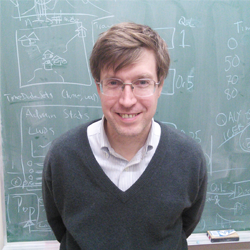
Dr. Nathaniel Osgood is a winner of the 2015-16 College of Arts & Science Teaching Excellence Awards for the science category. Osgood's research is focused on enhancing decision making in health and health care by using cross-linked simulation, mobile technology and machine learning tools to inform understanding of population health trends and health policy tradeoffs.
In teaching, Dr. Osgood uses an adaptive style that draws heavily on learning from close interactions with individual students and teams with provision of brief take-home exercises and videos to help surface student confusions and challenges. In teaching software engineering, he heavily emphasizes to students the importance of pairing a high standard of quality and circumspection in their work with a willingness to experiment and a vigilence in quickly recognizing, correcting and working to learn from mistakes.
“My teaching practice is heavily shaped by the desire to better understand and speak to students’ current understanding and challenges by confronting them with concrete challenges, seeking to help alert them to both opportunities but risks that they need to navigate, and to encourage honest reflection on mistakes as part of a commitment to ongoing improvement.”
ACM Distinguished Scientist
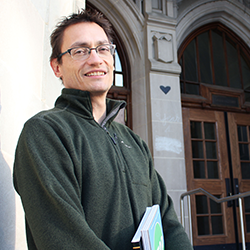
Computer science professor Carl Gutwin was selected as a Distinguished Scientist by the Association for Computing Machinery (ACM), the world’s largest educational and scientific computing society. The award celebrates the exceptional contributions of leading members in the computing fields. He was one of only three Canadians to make the list in 2015.
In addition to teaching in the department, Gutwin is also the director of the Human-Computer Interaction (HCI) laboratory, which studies and innovates the way in which humans and computers interact. With computing technology now permeating everyday life, the group’s diverse interests range from physical interactions—such as creating novel gestural and tangible interfaces, to emotional interactions—such as studying the effects that personal traits have on how people interact with technology.
Outstanding Young Computer Science Researcher

Dr. Regan Mandryk is one of Canada’s top researchers in Human-Computer Interaction, particularly in the areas of game research and affective computing. She is an extremely productive scholar with more than 100 publications, and both she and her work have received numerous awards. Dr. Mandryk and her students have made several important contributions to knowledge, all of which have had substantial impact on the research community.
For example, Dr. Mandryk developed the first models of emotional response in computer games, which enable games to adapt themselves to the player’s emotional state; she invented new techniques for player balancing that allow people of widely different skill levels to play together in competitive games; and she developed new techniques for persuasive computing that have been applied in a range of systems – from helping people make healthy food choices, to helping children with FASD improve their ability to concentrate. Dr. Mandryk’s research program is innovative and highly collaborative, provides expert training for a large number of students and other highly qualified personnel, and has attracted substantial interest from several industrial partners.
NEW RESEARCHER AWARD
Dr. Regan Mandryk received the New Researcher Award, one of the University of Saskatchewan’s top faculty awards at the 2015 Fall Convocation ceremony. In less than 10 years, Regan Mandryk has built a soaring reputation as a groundbreaking computer science researcher. Mandryk is internationally recognized as a leader in the field of human-computer interaction, and particularly in the area known as affective computing: developing systems that can read and interpret human emotions.
A breakthrough affective computing model built by Mandryk laid the foundation for tools and research now in use at major software companies such as Electronic Arts and Valve. These companies use the model to test video game and software prototypes, observing directly how much fun or frustration their users are experiencing. Future video games based on this approach might adapt in real-time to the user’s emotional responses.
Mandryk is also a leader in the “serious games movement,” which applies video games to address real-world issues. She has built methods to help children with neurological disorders regulate their emotions or perform therapeutic exercise through games, and has pioneered the design of exercise games that help elderly people and people in wheelchairs become active.
YWCA Women of Distinction Award in Research and Technology
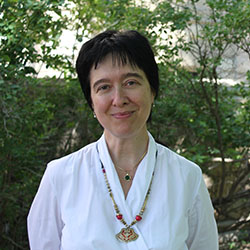
Dr. Julita Vassileva was awarded the prestigious YWCA Women of Distinction Award for Research and Technology on Thursday, May 28, 2015. Vassileva is an internationally recognized researcher in user modeling. Her passion lies in promoting the advancement of women and minorities in the field of computer science. She was the NSERC Cameco Chair for Women in Science and Engineering for the prairies from 2005-2011, and developed an innovative outreach program, Science Ambassadors, promoting enriched learning in remote Aboriginal communities. Vassileva is a string mentor who secures essential grant funding, and many of her students have gone on to achievements such as the NSERC Vanier Scholarship, careers with technology giants, and papers published in numerous research journals. She is deeply committed to diversity and respect.
USSU Teaching Excellence Award
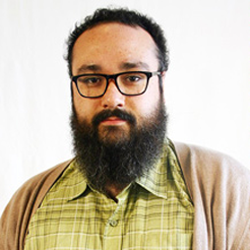
Provost's College Award for Outstanding Teaching
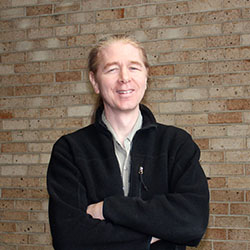
The Provost’s College Award for Outstanding Teaching is awarded to an exceptional teacher in each College of the University of Saskatchewan. In 2014, Michael Horsch received the Provost’s College Awards for Outstanding Teaching on behalf of the Division of Science for the College of Arts and Science.
Recipients demonstrate evidence of outstanding teaching and educational leadership. Outstanding teaching critieria includes an excellent demonstration of quality in teaching courses, sustained commitment to teaching and learning over a number of years, and student supervision and mentorship. Educational leadership qualities include the production of high quality peer-reviewed scholarly contributions related to university teaching, contributions to the mentorship and development of teaching skills in their peers and junior colleagues, activity related to the design or development of an innovative strategy, course, or program of study, and evidence of ongoing professional development in teaching
Dr. Regan Mandryk Inducted into the Royal Society of Canada's College of New Scholars, Artists and Scientists
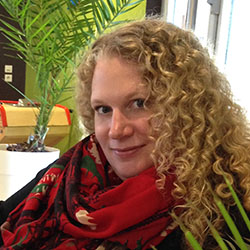
Mandryk was welcomed into the RSC college, along with 88 other young scholars from across Canada in the winter of 2014. All nominees for the RSC college must have received their Ph.D. or equivalent qualification within the last 15 years. The Royal Society of Canada (RSC): the Academies of Arts, Humanities and Sciences of Canada was established in 1882 as the senior Canadian organization of distinguished scholars, artists and scientists. It is Canada’s national academy. The College of New Scholars, Artists and Scientists, established by the RSC this year, is the first national system of multidisciplinary recognition for the emerging generation of Canadian academics.
Distinguished Researcher Award
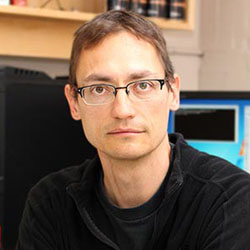
Established in 1992, the University of Saskatchewan Distinguished Researcher Award is presented semi-annually to a faculty member who has made a major contribution to knowledge or artistic creativity in their area of expertise. The recipients of this award are innovators in areas as diverse as the humanities, sciences, social sciences, engineering, law, pharmacy, education, and veterinary medicine.
Dr. Carl Gutwin is one of the world’s foremost experts on the fundamental role of awareness in the design of distributed groupware: software that enables people to work together over computer networks. His work has greatly increased our understanding of how to support rich and productive group work at a distance. Gutwin’s more than 160 publications have been cited more than 4,400 times.
Fueled by the recent transformation of computers from their roles as business machines and game consoles to lifestyle commodities, computer-human interaction (CHI) is currently one of the strongest and most competitive areas of computer science.
Gutwin is recognized internationally for his contributions to CHI. He was recently inducted into the CHI Academy, a distinction held by only three other Canadian faculty members and only 80 members worldwide. This distinction puts Gutwin in the company of the true pioneers of computing. He received the U of S Distinguished Researcher Award in 2014.
Alumni of Influence
The Alumni of Influence awards are a public way for the College of Arts & Science to recognize and celebrate our very distinguished alumni; the awards signal to today’s students that they are part of a vibrant and accomplished college.
After graduating from the Universtiy of Saskatchewan, Dr. Keith Geddes continued his studies at the University of Toronto, where he completed an M.Sc. in computer science in 1970 and a Ph.D. in 1973. That same year, he joined the University of Waterloo as a faculty member in Computer Science, where he is currently Professor Emeritus. His research interests lie in the areas of computer algebra systems, algebraic algorithms and hybrid symbolic-numeric algorithms for scientific computation.
Geddes was one of the two researchers who initiated the University of Waterloo research project in 1980 that led to the Maple computer algebra system. In 1988, he co-founded Waterloo Maple Inc. (now Maplesoft) and served for many years on its board of directors. He has served as scientific director of the Ontario Research Centre for Computer Algebra (ORCCA) based at the University of Western Ontario and the University of Waterloo.
Geddes is the author or co-author of nearly 50 research publications on topics related to scientific computation and computer algebra algorithms and systems. He is the leading author of the groundbreaking textbook Algorithms for Computer Algebra (with co-authors Czapor and Labahn) and was a major contributor to the foundational algorithms for the Maple computer algebra system.
Distinguished Graduate Supervisor Award

The Distinguished Graduate Supervisor Award has been established to honour those faculty members who excel in the supervision of graduate students. Dr. Julita Vassileva was awarded this honorable recognition at this past Fall Convocation ceremony in 2014.julita-vasseliva
The University of Saskatchewan recognizes that working with graduate students is one of its primary functions and, accordingly, it expects its faculty members to strive towards excellence in this activity. An atmosphere in which excellence in graduate student supervision is not only encouraged but also acknowledged in a tangible and visible manner must be created. As one step toward achieving this end, the Distinguished Graduate Supervisor Award has been established.
USSU Teaching Excellence Awards
Dr. Neilson was also awarded the Sylvia Wallace Sessional Lecturer Award in 2013. Teaching by Sessional Lecturers is of major importance in fulfilling the University’s commitment to giving all students first-rate instruction. The Sylvia Wallace Sessional Lecturer Award sponsored by The Gwenna Moss Centre for Teaching Effectiveness annually recognizes the important and essential contribution of sessional lecturers to the University of Saskatchewan's teaching community. It celebrates exceptional competence in teaching - including superior command of the subject area, skills at organizing and developing class materials, and the capacity to motivate and inspire students.
Student Academic Achievement Awards
2015 Awards
| Award | Recipient |
|
University of Saskatchewan Graduate Thesis Award (PhD) Physical and Engineering Sciences recipient Thesis: Design and data analysis of kinonome microarrays |
Brett Trost |
|
University of Saskatchewan Graduate Thesis Award (MSc) Physical and Engineering Sciences recipient Thesis: The Design and Use of a Smartphone Data Collection Tool and Accompanying Configuration Language |
Dylan Knowles |
|
(awarded to the student who achieves the highest academic standing at the graduate level) |
Brett Trost |
| Most Outstanding Graduate in Mathematics | Omar Khisraw Zarifi |
| Most Outstanding Graduate in Computer Science | Omar Khisraw Zarifi |
| Most Outstanding Graduate in Interactive Systems Design | Cheralyn Dawn Atkins |
| Saskatchewan Innovation and Opportunity Scholarship |
Ahmed Abdel Moamen Kimberly Mackay |
| Geddes Graduate Scholarship in Computer Science | Max Birk |
| SaskCanola: Dr. Roger Rimmer Award for Excellence in Graduate Research | Miles Buchwaldt |
2014 Awards
| Award | Recipient |
| Earl of Bessborough Prize in Computer Science | Ivan Vendrov |
| Most Outstanding Graduate in Computer Science | Ivan Vendrov |
|
The Governor General's Gold Medal (awarded to the student who achieves the highest academic standing at the graduate level) |
Matthew Links |
|
The Governor Genera's Silver Medal (awarded to the undergraduate student with the higest academic standing at the undergraduate level) |
Ivan Vendrov |
| Master's Graduate Thesis Award for Physical and Engineering Sciences | Adam Preuss |
| Most Outstanding Graduate in Bioinformatics | Matthew Shannon |
2013 Awards
| Award | Recipient |
| Dean's Medal in Arts and Science | Yichen Dang |
| University Medal in Sciences | Yichen Dang |
|
(awarded to the student who achieves the highest academic standing at the graduate level) |
David Flatla |
| Most Outstanding Graduate in Bioinformatics | Carolyn Caron |
| Most Outstanding Graduate in Computer Science | Julian Miller |

